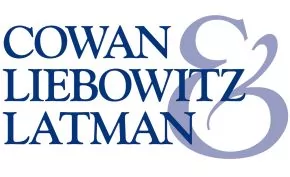The Trademark Trial and Appeal Board (TTAB) appears to have increased the standard of evidence to support a refusal to register a slogan as a trademark, on the ground that it fails to function as a mark.
Background
Consumers ordinarily take widely used commonplace messages at their ordinary meaning, and not as source indicators, absent evidence to the contrary. Such terms are not registrable as trademarks, because they fail to function to identify and distinguish a brand owner's goods from those of others and to indicate the source of those goods.
Failure to function refusals have been frequent in recent years, and we have reported on several TTAB cases affirming such refusals based on evidence of widespread use: TEXAS LOVE, PAST PRESENT FUTURE, .SUCKS, FUCK, and TACO TUESDAY.
We also have reported on unusual cases in which the TTAB has reversed such refusals on evidentiary grounds: SAY YES TO WHAT'S NEXT (no evidence of common or widespread use for clothing or educational services), and 100% THAT BITCH (evidence more associated with Lizzo's hit song lyric than with general use to convey social, political, patriotic, religious, laudatory, or informational messages).
Standard of Evidence
GFactor Enterprises, LLC d/b/a Gfactor Films applied to register MAKE YOUR PASSION YOUR PAYCHECK (in standard characters) for a series of non-fiction books, educational services, and articles of clothing. The Examining Attorney refused registration on failure to function grounds. The Applicant divided out the application for clothing, and focused its appeal to the TTAB only on the refusal to register its slogan for articles of clothing.
The TTAB reversed. The decision emphasized that the "critical inquiry... was how the relevant public perceives the term sought to be registered." Included in the decision are seven pages showing the evidence submitted by the Examining Attorney. This consisted of 14 websites of third parties using MAKE YOUR PASSION YOUR PAYCHECK as service marks, book titles or emblazoned in an ornamental manner on T-shirts or artwork.
The Examining Attorney argued that this evidence showed the topics of self-help and motivation are common to convey the well-understood message that one should do what they love and make money doing so.
The Applicant argued that that its slogan possessed an incongruous meaning of "turning a 'passion' into a 'paycheck'", a concept that "does not inform anyone of anything." It also argued that the Examining Attorney's evidence insufficient to meet the high standard needed to prove either "nationwide interest or a phrase that is spoken daily without much thought". Rather, the Applicant asserted, its phrase likely was "never spoken by anyone in common parlance, but is a clever slogan that suggests that someone's strong and barely controllable emotions can lead to them earning money."
The TTAB held that the record did not uniformly demonstrate commonplace third-party use of the phrase, or its variants. Due to what the TTAB called the "mixed record" of 14 websites presented by the Examining Attorney, it rejected the Examining Attorney's argument, and it reversed the refusal to register this slogan as a trademark for clothing.
In re GFactor Enterprises, LLC d/b/a Gfactor Films, Application No. 90976324 (T.T.A.B. May 5, 2023)
Author's Note: When an Examining Attorney refuses to register your slogan as a trademark or service mark on failure to function grounds, you may be able to overcome that refusal by arguing to the Examining Attorney, or to the TTAB on appeal, that the evidence is insufficient to prove widespread third-party use of that slogan to express a commonplace message.
The content of this article is intended to provide a general guide to the subject matter. Specialist advice should be sought about your specific circumstances.

